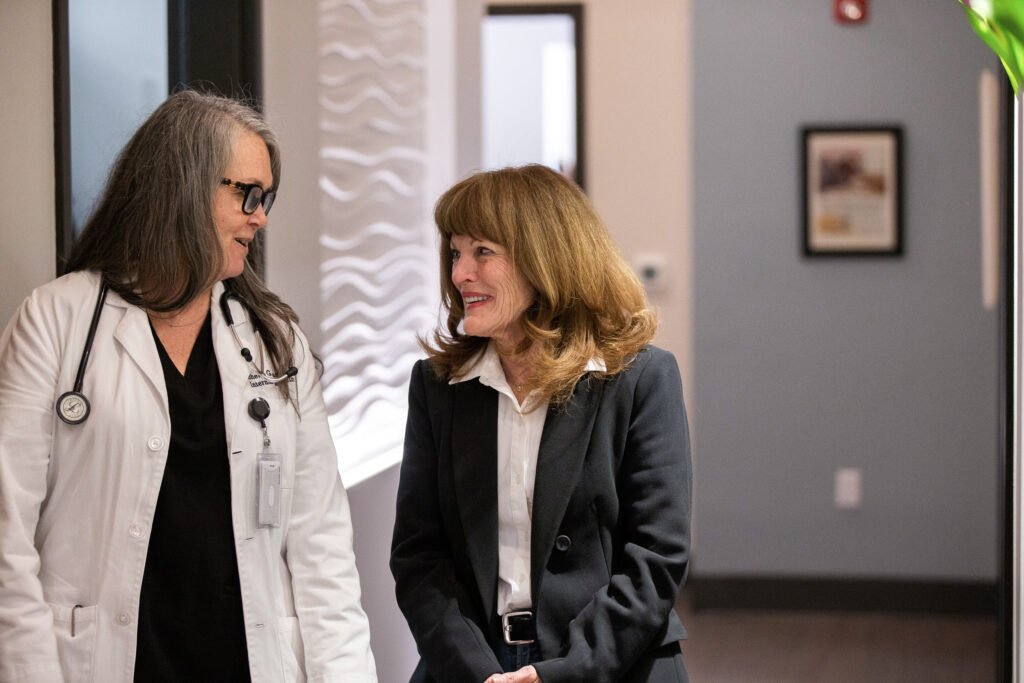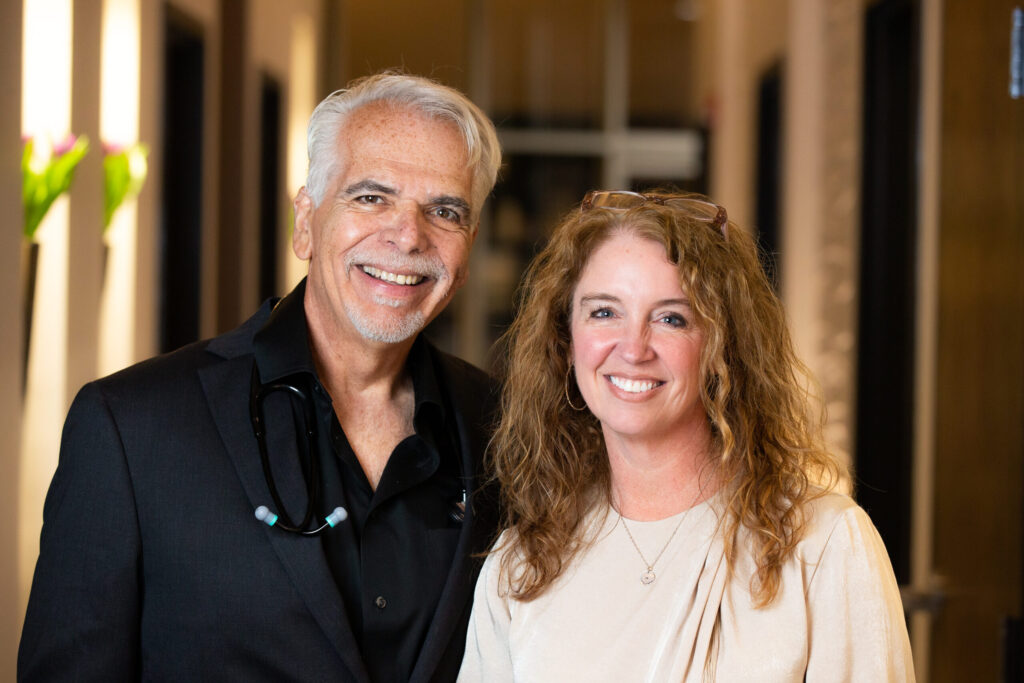Picture it: Memphis. 2023. Two concerned parents convince their 21-year-old son to visit a specialist after he complains of persistent knee pain following an accident on a vintage Moped. The doctor examines the knee, orders an MRI, and sends the patient on his way. No less than two months later, the patient receives a phone call with the results – the knee had been broken the whole time.
Those parents were us, Shannon and Lloyd, the patient was our son, and that lengthy and inefficient experience exemplifies just one issue that many American families are facing with the current healthcare model.
It’s no secret that the insurance-based American medical model is riddled with problems: long wait times, siloed specialties, reactive care, overtreatment, surprise bills, and calls from the collection agency. Stories like ours are becoming commonplace.
The fact is, most doctors are capable and well-meaning. The system, however, is broken, and the consequences of a broken system pose a threat to your quality of healthcare – your quality of life. So, what’s wrong with the insurance-based healthcare model? Stick with us. We’re here to break it down for you.

What’s Wrong with the Insurance-Based Healthcare Model?
So you’re working with the good old, all-American healthcare system, are you? We can’t say we’re jealous, but we also can’t say we haven’t been there. We’re not sporting Big Insurance’s campaign pins around the office, that’s for sure, and we’re not too shy to say it. But it’s important to understand that the issues with insurance aren’t isolated conditions limited to your regularly scheduled rants with an insurance agent – they make up the skeleton of the entire traditional American healthcare system, and that hurts both patients and doctors alike. Here’s how:
Wasted Time
You know the drill: hurry up and wait. Wait six weeks for the appointment, wait two hours in the waiting room, and then spend your allotted 5 minutes with the doctor. Sadly, that’s the typical experience in the traditional insurance-based system.
Where does all that time go? To begin with, the required documentation for insurance is a huge time suck that pulls doctors and clinic staff away from patients. In fact, it’s getting worse. Studies show that clerical documentation takes doctors three times longer than it used to. And that’s just the start of the problem.
Limited Access to Your Doctor
Time is our one precious, non-renewable resource. Insufficient reimbursement and other costs of relying on insurance require physicians to see more patients per day to generate enough revenue to pay the bills and keep the clinic doors open.
The math is simple. Booking more patients means less time to spend with each one. Less time spent with each patient means missing out on opportunities for establishing the real relationships on which quality care is based.
Wasted Money
Can you imagine operating a restaurant where the bill is presented to your guests at three or four times more than what the guest expects to pay? “Don’t worry,” says the server to the shocked guests, “that number is not what we’re actually charging. It’s just a starting point.”
The system of reimbursement for physician services is just as crazy. Physicians and medical groups negotiate with insurance companies to be paid a percentage of their “standard” fees for visits and procedures in return for the privilege of caring for the insurance companies’ patients. So, since they’re only getting a portion of what they bill, doctors inflate their charges so that they can receive a reasonable fee for services.
Insurance companies quickly caught on to the practice of inflating fees, though, and responded by adding layers of complexity to the billing process. Each claim runs through a series of tests looking for any inconsistency that might allow the claim to be rejected and sent back to the provider for correction and resubmission. Extra staff are required to handle these claims, complicated and expensive revenue management systems must be maintained, and the process of submitting and re-submitting can take weeks or months. Even then, there is no promise of being paid.
And none of it offers any reward for being a good, caring doctor for you, the patient.
Reactive Care
The combination of limited time and limited access to medical knowledge means patients suffer from a lack of high quality care in the United States. Nobody wants to hear it, but we are dead last compared with six other major industrialized countries in quality of healthcare. As a result, doctors spend more time correcting medical issues than preventing them – and there’s almost never time to follow up with a patient to find out how well a treatment worked or to address any concerns.
I mean, can you remember a time your doctor gave you a call to ask if that new medication improved your symptoms? Probably not, unless you’re a ZüpMed Member, that is.
So, Why Are We Here?
Let’s accept the likelihood that, at least for the foreseeable future, we’re all stuck with the current insurance-based American healthcare system. Why won’t an inefficient system change? Primarily because the very groups and individuals who are profiteering from the current system like it just fine, thank you very much, and are able to pay to keep it that way.
Medical specialists who are compensated by procedures, pharmaceutical companies, and even the insurance companies themselves with their highly paid executives are happy with our medical system just the way it is. Primary care physicians, pediatricians, palliative specialists? Not so much.
But who’s more capable of writing a big check to lobbyists? Until the United States takes a sharp turn and begins to offer universal health care to all Americans at a fair price, we’ll have to live with what we’ve got. And what we’ve got has a lot of issues.

To Be Continued…
That may leave you with a sour taste in your mouth – and rightfully so – but don’t let it get you down. There may still be hope! With the rise of Concierge Medicine and Direct Primary Care models, ZüpMed and the medical community are working to usher in a new era of healthcare that addresses the issues posed by the insurance-based model. Stay tuned for Part II of this saga, where we’ll discuss alternative solutions and how we’re taking our stand against a system that no longer serves us.
 Schedule Now
Schedule Now

